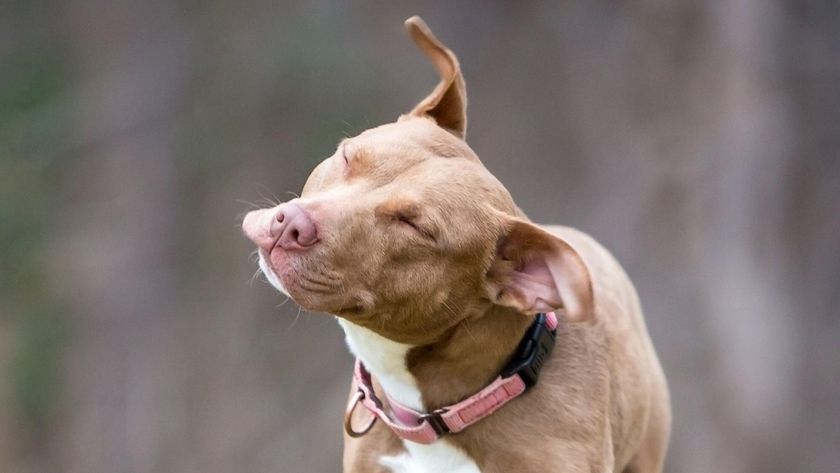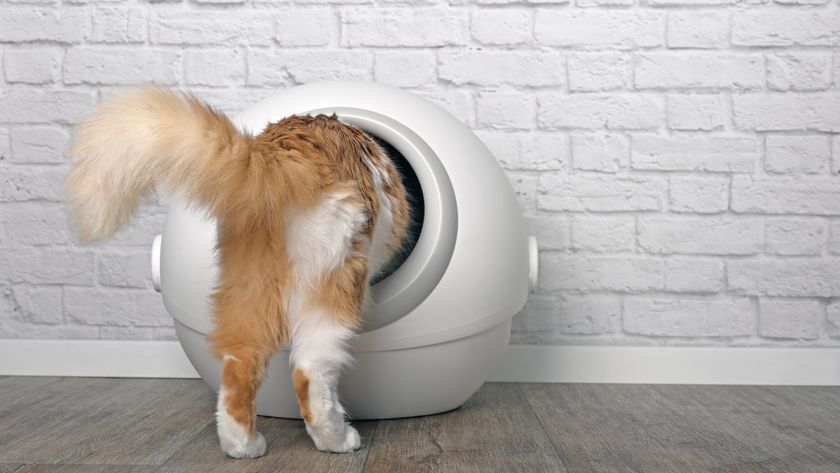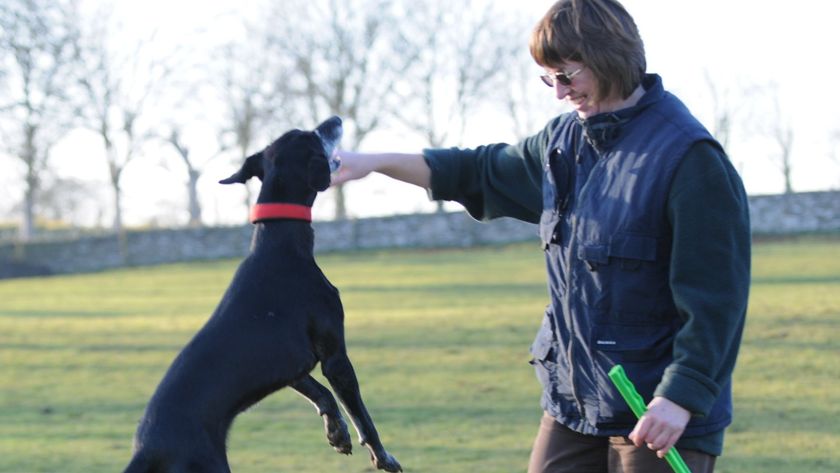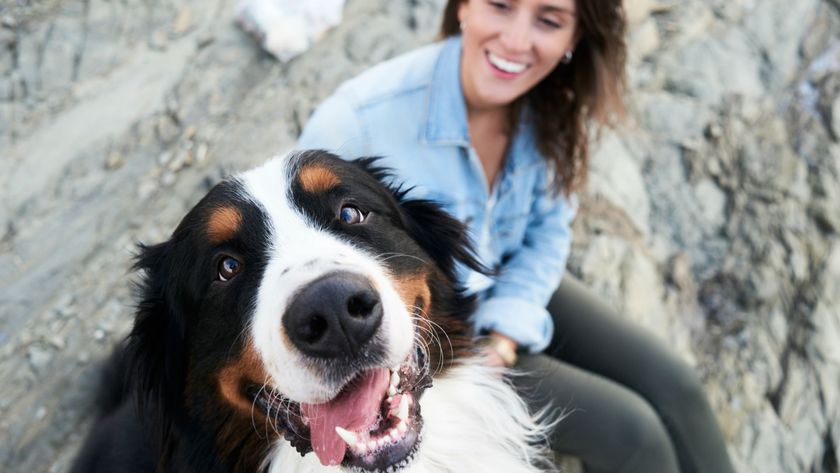Prozac for dogs: Vet's guide to dosage and side effects
Have you wondered if your dog would benefit from taking Prozac? Read on to learn more about Prozac for dogs

Prozac is an antidepressant commonly prescribed in humans that also provides benefits in dogs and cats when combined with behavior modification.
Some pet insurance companies will cover the cost of treatment for behavioral issues, so this is a point worth considering when you take out insurance for your pet. Let’s have a closer look at what Prozac is and when it should and shouldn’t be used in dogs.
What is Prozac for dogs?
Prozac, or fluoxetine hydrochloride, is an antidepressant, specifically a selective serotonin reuptake inhibitor (SSRI). Serotonin, sometimes referred to as a “happy hormone,” is a neurotransmitter that has been shown to boost mood and reduce levels of anxiety and depression.
SSRIs increase serotonin levels in the brain by preventing serotonin reuptake and removal from the central nervous system, allowing serotonin to accumulate. SSRIs can therefore help with several mental health issues in both human and veterinary medicine.
What does Prozac do for dogs?
Prozac is licensed by the US Food and Drug Administration (FDA) to treat separation anxiety in dogs. It can also be prescribed off-license for generalized anxiety, panic disorders, compulsive disorders and hyperactivity in dogs, inappropriate urine marking, and some cases of aggression.
It is important to note that Prozac and other antidepressant or antianxiety medications should always be used in combination with behavioral modification techniques.
This includes identifying a particular dog’s triggers and either avoiding them completely or training the dog to react differently to them. Prozac can be a helpful addition to this type of training by lessening a dog’s heightened anxiety, which can interfere with their ability to learn, to allow them to respond better and learn more efficiently.
Prozac usually takes 3-4 weeks to start working in dogs, so it is more useful for cases with day-to-day issues like anxiety or compulsive behaviors. Dogs with specific phobias like fireworks or thunderstorms benefit more from short-acting medications with a quick onset, like benzodiazepines, to calm them down.
Recommended dose of Prozac for dogs
According to MSD Veterinary Manual, the recommended dose of Prozac for dogs is 1 mg/kg/day (or about 0.45 mg/lb/day). However, this can vary depending on the individual dog, any coexisting conditions they may have, and any additional medications they take, with most doses in the range of 0.5-2 mg/kg/day (or about 0.23-0.9 mg/lb/day).
Giving your dog Prozac should always be done under the supervision of your veterinarian, and you should never adjust the dose without consulting them first.
Prozac is given orally in the form of a tablet, capsule, or liquid. It can be given with or without food—if a dog vomits when given the medication on an empty stomach, it should be given with food.
Depending on the underlying reason why a dog is prescribed Prozac, they may benefit from taking it for a limited period of time (i.e., 6 months to 1 year to assist with behavior modification training) or they may require lifelong treatment, for example, in cases with severe anxiety.
When Prozac is stopped, it should be tapered off over a couple weeks to prevent side effects seen with sudden discontinuation such as rebound anxiety. Prozac should never be stopped abruptly unless specifically instructed by a vet.

Side effects of Prozac in dogs
The side effects of Prozac in dogs can range in severity from mild to severe, and they include:
- Reduced appetite
- Lethargy
- Vomiting
- Diarrhea
- Incoordination
- Restlessness
- Weight loss
- Seizures
- Increased aggression
It is important to let your vet know if your dog experiences any of these signs, especially more severe symptoms like seizures or aggression.
If you suspect that your dog has overdosed on Prozac or if they show signs such as extreme lethargy, hypersalivation, persistent vomiting, agitation, and/or seizures, you should seek veterinary attention immediately.

Dr. Diana Hasler graduated with distinction from the University of Edinburgh Royal (Dick) School of Veterinary Studies in 2018. She has experience working as a small animal veterinarian in general practice, where she has treated many dogs, cats, rabbits, and rodents. She has also recently branched out into the field of medical communications, doing freelance work as a medical editor and writer
Considerations before giving Prozac in dogs
Prozac should be avoided or used with caution in dogs with certain health conditions. For example, the medication should be avoided in dogs with diabetes mellitus because it may interfere with insulin requirements.
In addition, it can cause seizures in rare cases, so it should not be given to dogs with a history of epilepsy or other seizure disorders.
Prozac should be avoided in pregnant and lactating dogs, as well as in dogs with a known allergy to the medication. It should be used with caution in dogs with liver disease, and such dogs often require a lower dose.
It is also important to tell your vet if your dog is on any medications (i.e., carprofen, gabapentin, etc.), vitamins, or supplements before starting Prozac in case of any drug interactions.
Some drugs that may interact with Prozac include:
- Tricyclic antidepressants
- Monoamine oxidase inhibitors (MAOIs)
- Benzodiazepines like diazepam and alprazolam
- Trazodone
- Methadone
- Tramadol
- Insulin
- Warfarin
- Clopidogrel
- Beta blockers
- Flea/tick collars containing amitraz
- Phenytoin
- Diuretics
When Prozac is combined with other drugs that increase serotonin levels, like MAOIs (i.e., selegiline), trazodone, tricyclic antidepressants, or other SSRIs, there is a risk of serotonin syndrome.
Serotonin syndrome has mainly been documented in humans, but it has been rarely reported in dogs. It causes neurological, gastrointestinal, cardiorespiratory, and coagulation disorders, and it can be fatal.
For this reason, dogs require a “wash-out” period between Prozac and other serotonin-boosting medications to allow the metabolites of the first medication to disappear before starting the new one.
How much does Prozac for dogs cost?
The price of Prozac for dogs depends on where it is obtained and the required dose. Since Prozac requires a prescription, it must be bought from a veterinary clinic or a pharmacy that dispenses medications for pets—a written prescription is required for the latter.
Generally, Prozac is quite affordable, even in larger dogs who require a higher dose of medication. Your veterinarian can give you more information on how much Prozac will cost for your dog and where you can buy it.
PetsRadar Newsletter
Get the best advice, tips and top tech for your beloved Pets
Dr. Diana Hasler graduated with distinction from the University of Edinburgh Royal (Dick) School of Veterinary Studies in 2018. She has experience working as a small animal veterinarian in general practice, where she has treated many dogs, cats, rabbits, and rodents. She has also recently branched out into the field of medical communications, doing freelance work as a medical editor and writer. Dr. Hasler currently lives in Edinburgh where she enjoys spending time with her husband Gavin and playing with their feisty tabby cat Poppy.

Vet shares 5 signs of spring allergies in dogs you need to watch out for

How far can dogs smell? And other ‘nosy’ questions answered










